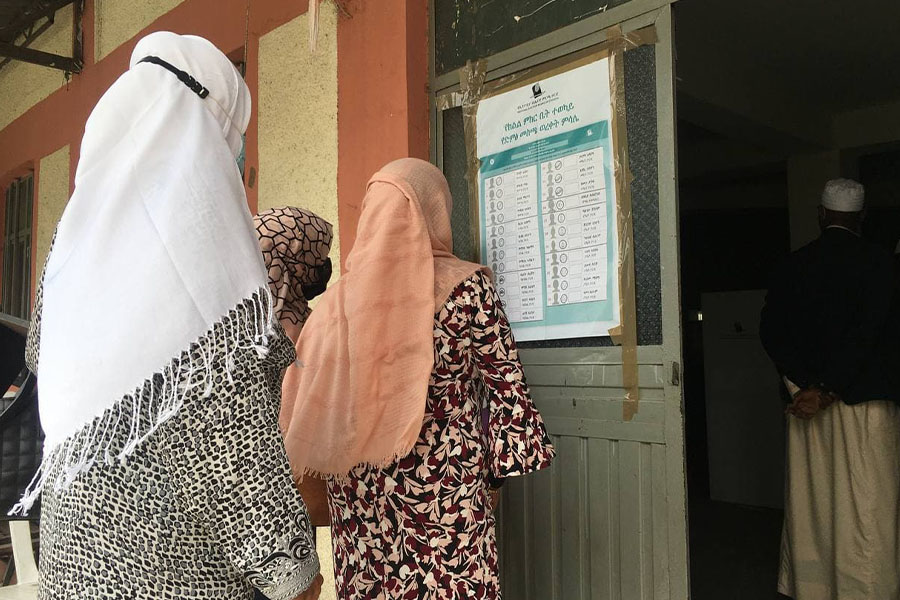
Viewpoints | Aug 21,2021
Jan 30 , 2022
Economics can be heartless. The field’s obsession with numbers and taking the long-term macro view drives social justice activists crazy. Economists general penchant for models and large data sets drives the political left nuts. This disconnect informs the criticism against GDP as a measure of the wellbeing of a country. Aggregate economic output is considered a crude estimate that disregards essential factors such as freedom and equality.
They are not wrong, especially when it comes to the argument for depreciating a country’s currency. The International Monetary Fund (IMF) has often been criticised for supporting slashing the value of a currency, and removing subsidies, whenever a country is in financial straits. Combined with prescriptions like higher borrowing costs, such monetary policy will make households poorer while also curbing economic growth.
The problem is that when a country is in deep debt, there are not many alternatives to address fundamental macroeconomic failures other than depreciating the currency. It is this or hoping for debt moratorium or relief, and this does not come about that often. Ethiopia’s government finds itself in a similar situation, and it could be following a time-tested antidote to make it easier to pay off its debt.
This is how there is a tradeoff between the value of a currency and debt obligations. It may seem counterintuitive since foreign currency-denominated debts will become more expensive the more the Birr is depreciated.
Consider this. Say the federal government needs two billion dollars to cover expenditures for 2022. It has two alternative sources of credit. One is foreign creditors and the other is selling treasury bonds, the latter of which is becoming increasingly popular. It manages to secure one billion dollars in loans from bilateral and multilateral partners. The government borrows the rest from domestic creditors – mostly banks and insurance firms – by selling treasury bonds denominated in Birr (only domestic institutions would be interested in holding debt denominated in such an obscure currency). The government will owe 50 billion Birr to its domestic bondholders at current exchange rates.
Let us assume that interest rates do not apply (which is not unprecedented since borrowing costs have been very low in the developed world). The government also has to settle the entirety of the principal in 2023.
A year later, the debt is due and creditors are knocking on the door. Unfortunately, the government may not have two billion dollars in its treasury at the moment. It scrapes the bottom of the barrel and all it could come up with is 1.5 billion dollars, not enough to cover its debt obligations.
What should it do?
Debt can be restructured, but creditors rarely agree to this. The government could also default but this is a big no-no. Even absolute monarchs knew this was a bad idea. It is not just the fictional Lannisters that have to pay back their debts. But, based on the currency composition of the debt, a country can use its monetary sovereignty over its currency to make payment possible.
There is not much that could be done about the one billion dollars owed to foreign creditors as the government has no power over a dollar, a euro or a renminbi. It has to be paid back in full. The federal government will have 500 million dollars left in its coffers, which amounts to 25 billion Br at 2022 exchange rates. By halving the value of the Ethiopian currency (not that far removed from reality as the Birr has depreciated by a quarter since last year), the half a billion dollars in the fed’s treasury all of a sudden translates to 50 billion Br – the total amount it owes domestic creditors. This way, the government technically pays back its debt and appears creditworthy and the banks that are owed the sum will not be at risk of insolvency.
There is a price nonetheless. Foreign creditors are paid back at the expense of ordinary people - one of the main criticisms against the IMF as it is seen to prioritise Western creditors. Savings will have been halved in value over a year. Anyone with liquid assets as a more significant share of their net worth will lose a large portion of their wealth. It is perhaps the best argument against why the economy should not be left wholly to economists.
PUBLISHED ON
Jan 30,2022 [ VOL
22 , NO
1135]

Viewpoints | Aug 21,2021

Radar | Jul 31,2021

Viewpoints | Jan 29,2022

Fortune News | Dec 25,2021

Commentaries | Oct 14,2023

Fortune News | Sep 30,2021

Commentaries | Aug 29,2020

Fortune News | Aug 21,2021

Fortune News | Jul 11,2021

Radar | Sep 10,2021

My Opinion | 132158 Views | Aug 14,2021

My Opinion | 128568 Views | Aug 21,2021

My Opinion | 126490 Views | Sep 10,2021

My Opinion | 124098 Views | Aug 07,2021





Dec 22 , 2024 . By TIZITA SHEWAFERAW
Charged with transforming colossal state-owned enterprises into modern and competitiv...

Aug 18 , 2024 . By AKSAH ITALO
Although predictable Yonas Zerihun's job in the ride-hailing service is not immune to...

Jul 28 , 2024 . By TIZITA SHEWAFERAW
Unhabitual, perhaps too many, Samuel Gebreyohannes, 38, used to occasionally enjoy a couple of beers at breakfast. However, he recently swit...

Jul 13 , 2024 . By AKSAH ITALO
Investors who rely on tractors, trucks, and field vehicles for commuting, transporting commodities, and f...

Jul 12 , 2025
Political leaders and their policy advisors often promise great leaps forward, yet th...

Jul 5 , 2025
Six years ago, Ethiopia was the darling of international liberal commentators. A year...

Jun 28 , 2025
Meseret Damtie, the assertive auditor general, has never been shy about naming names...

Jun 21 , 2025
A well-worn adage says, “Budget is not destiny, but it is direction.” Examining t...

Jul 13 , 2025 . By YITBAREK GETACHEW
The Addis Abeba City Revenue Bureau has introduced a new directive set to reshape how...

Jul 13 , 2025 . By BEZAWIT HULUAGER
Addis Abeba has approved a record 350 billion Br budget for the 2025/26 fiscal year,...

Jul 13 , 2025 . By RUTH BERHANU
The Addis Abeba Revenue Bureau has scrapped a value-added tax (VAT) on unprocessed ve...

Jul 13 , 2025 . By NAHOM AYELE
Federal lawmakers have finally brought closure to a protracted and contentious tax de...